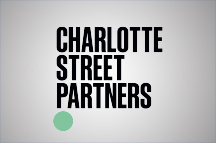July 4 will be my second time wielding the stubby pencil at a UK general election. This fact alone marks me out as a minority among my peers but also, apparently, as Hot AF. I will cringe and then explain.
In the 2019 general election just over 50% of 18 to 24 year olds turned out to vote. A miserly return. And the predictions are that this could fall ever further for Sunak’s snap holiday election.
Gen Z, born between the mid-to-late 1990s and the early 2010s, makes up around 15% of the voting population. Yet, a poll last week indicates that political apathy is soaring amongst young voters at this election, who say issues affecting them have not been addressed by the major parties.
Accordingly, a massive 38% of Gen Z and millennials have already decided not to vote – almost double the national average. Add in those who don’t turn up on the day and we have a crisis.
It’s easy to find out why: just ask a baby boomer. Young people are uninterested, entitled snowflakes. Except, like, we’re not. As a young person who is politically engaged, these reasons are both inaccurate and wrong.
The key question is: what are young people supposed to be voting for?
Is it Starmer’s “safety-first campaign” to reassure converted Tory voters, promising “change” with a lack of hope? Or Sunak’s desperate attempt at retaining as many Conservative seats as he can, with bigger tax allowances for older voters and National Service for the young?
The young have been left in the trenches.
While impacting the lives of the young directly, the Conservative’s National Service policy is an appeal to older voters and could not be any further from what young people want. Meanwhile, pensioners will benefit under the proposed Triple Lock Plus.
On the other hand, Labour’s manifesto is expectedly cautious. There is a step in the right direction with the promise of new homes, help for first time buyers, strengthening of workers’ rights, and commitments, albeit vague, to green energy. It only touches the surface, however, of the biggest areas impacting the young; omitting, for example, their 70% home ownership target. It promises “change” but neglects to mention how it will be delivered.
The SNP promises to provide young people with a better future through Scottish independence, but with little detail about what this would mean.
Young people want to have faith that parties will invest in their future.
We want transformative action to tackle the housing crisis, which will enable us to rent affordable accommodation in cities.
We want to be able to save for the future, and one day buy our own homes.
We want help with mounting student debt and greater spending on mental health services.
And we want a greater focus on tackling climate change, the brunt of which will come to bear on younger generations.
Outside the party system, others are trying to motivate young voters. A new non-partisan campaign launched as part of the Just Vote initiative aims to encourage them to “swipe right to voting”.
Built on the (slightly dubious) insight that voting makes you more attractive, the advertising is inspired by modern dating culture and draws upon the notion that attractiveness is subjective, as political decisions can be.
It is, however, a good example of how young people are often misunderstood and infantilised. The language and imagery miss the mark – not least its emphasis on the aubergine emoji and the phrase “Hot AF”. Is this really going to persuade young people to engage with politics?
I applaud the intent but what we really need is our political parties to speak honestly about the issues that matter. The aubergines can go in the bin.
All that being said, I’ll be at the polling station, equipped with a sense of hope, tarnished but so grand (one for the Swifties), for the change a new government may bring to the table.
The option to exercise your vote, to decide our future, is a fundamental right too important to be embroiled in the wreckage of our country’s party politics and uninspiring political agendas.
“Courage calls to courage everywhere, and its voice cannot be denied,” said Millicent Fawcett, leader of the National Union of Women's Suffrage Societies.
On July 4, I hope you will have some courage too.
by Sophie Taylor, Associate. Do you have a view? Drop me an email at sophie.taylor@charlottestreetpartners.com












